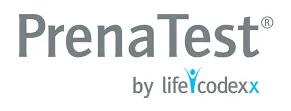About NIPT
Learn more about Non Invasive Prenatal Testing
Safe
Simple
Reliable
How Does NIPT Work?
Ultrasound Scan
Blood Sample
Triploidy (Panorama NIPT ONLY)
Sex aneuploidies including
Monosomy X (Turner syndrome)
Klinefelter syndrome
Triple X syndrome
Microdeletions including
22q11.2 deletion syndrome or DiGeorge syndrome
1p36 deletion syndrome
Prader-Willi syndrome
Angelman syndrome
Cri-du-chat syndrome
Results
NIPT testing alone does not provide information on physical defects, mosaicism, partial trisomy, translocations or triploidy (excluding Panorama NIPT) and thus it is essential that a detailed ultrasound scan is undertaken for full evaluation purposes.
NIPT testing with any company is dependent on the amount of cfDNA circulating within the sample, and sometimes there is not enough. In these cases the result can be delayed as further analysis is needed and in some cases another blood sample or redraw would be required.
Blood samples are usually dispatched the next working day after the sample draw.
If you have recently undergone a blood transfusion, transplant surgery, immunotherapy or stem cell therapy please speak with an adviser at this is my: healthcare prior to the blood sample being taken.
Turn around Time (TAT) are calculated from when the sample reaches the laboratory in working days (NOT calendar days). It is estimated that 95% of samples will have a result within this time scale. When further sequencing is needed in order to obtain a result, TAT can be slightly longer.
this is my: healthcare provides NIPT service via various shipping channels but cannot fully guaranteed turnaround times. Shipping delays occasionally occur (1-3 days) but these do not usually affect your sample. Please be aware of the possible delays.
this is my: baby
About our NIPT providers
- NIFTY™ byBGI Health processed by BGI in Hong Kong
- Panorama™ by Natera in the USA
- IONA® by Premaitha in the UK
- PrenatalSafe® by Eurofins in Italy
Testimonials

Nifty

Panorama

theIONAtest

Prena Test

PrenatalSafe
Pregnancy Outcome Survey:
We continually strive to monitor the quality of our service to ensure we improve if and where necessary and we would be very grateful if you would please complete the following pregnancy outcome form.
NIPT Feedback Survey:
We want to know if we have given you a good service, What were our strong points but also how could we do better. We would be very grateful if you would please complete the following NIPT feedback survey form.


